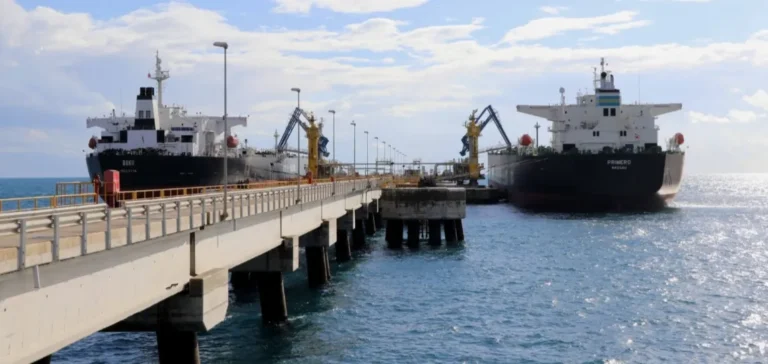ShaMaran Petroleum Corp. has announced the loading in Ceyhan of a first crude oil cargo reflecting its contractual rights under the new framework set by Iraqi authorities to govern Kurdish oil exports. This operation enacts an interim agreement between the federal government of Iraq, the Kurdistan Regional Government (KRG), and a group of international oil companies (IOCs), aimed at temporarily regulating payments after the partial restart of the Iraq–Türkiye pipeline (ITP).
A hybrid payment mechanism centred on Ceyhan
This first lifting is part of a hybrid payment scheme combining a $16/bbl cash reimbursement for costs and the delivery of “in kind” barrels at Ceyhan. These cargos are sold by a trader appointed by the IOCs, with funds channelled through an escrow account to secure payments amid a politically volatile environment. The agreement operates on a rolling 30-day basis, with no guarantee beyond each term, underscoring the fragility of the commitments between the parties.
The crude allocated to ShaMaran originates from the Atrush and Sarsang blocks, in which the company holds 50% and 18% contractual interests respectively. Deliveries reflect net volumes attributable under production sharing contracts (PSCs), validated by the State Oil Marketing Organization (SOMO), now overseeing all official exports.
Supervised pipeline restart and redistribution of oil power
The pipeline was restarted in late September 2025 following a more than two-year halt due to an international arbitration ruling that condemned Türkiye for accepting Kurdish exports without federal approval. The restart is now under SOMO’s authority, which enforces strict contractual oversight, centralising all flows through Ceyhan under Iraq’s national oil policy.
The implications for the Kurdistan region are considerable: in exchange for renewed access to international markets, the KRG has relinquished autonomous marketing power, agreeing to route its volumes through federal oversight and contracts endorsed by Baghdad.
Payment risk and cash-flow pressure for ShaMaran
This first loading represents a concrete test of the financial viability of the new mechanism. ShaMaran, which produced an average of 18,000 barrels per day in the third quarter, is now waiting for the effective conversion of this cargo into cash within a promised 30-day window. The company experienced a significant decline in free cash-flow after pipeline export halts forced a pivot to heavily discounted local sales, with delayed receivables compounded by the transition to the new system.
Meanwhile, security risks persist. A drone attack in July 2025 temporarily shut down production at Sarsang, highlighting the vulnerability of installations. ShaMaran, however, reported a swift return to full output at Atrush and partial recovery at Sarsang.
Fragile political balance and tighter contract obligations
The current agreement operates on a provisional basis and is due for renegotiation in early December 2025. The terms of renewal, including how legacy receivables are handled, will be key to sustaining financial flows and future deliveries. The formal recognition of PSCs by the federal government is a structural advance, but the need for audits and validation of entitlements reflects the political leverage Baghdad retains.
The Ceyhan shipment occurs amid tighter Western sanctions regimes, especially on networks circumventing controls via Iraq. Traders must now demonstrate enhanced compliance for each cargo, adding complexity to commercial operations.






















